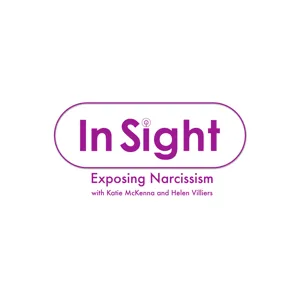Podcast Summary
Personal growth journey with past traumas and health issues: Advocate for yourself, seek help, and practice self-compassion during personal growth journey. Childhood experiences shape our identities, but painful experiences don't define who we can become.
Personal growth and self-discovery can be a long and challenging journey, especially when dealing with past traumas and health issues. Katie shared her experience of living with undiagnosed neck pain for years and the relief she felt after finally getting the correct diagnosis and treatment. She emphasized the importance of advocating for oneself and seeking help, even when it feels uncomfortable or uncertain. The conversation also touched on the impact of childhood experiences and how they shape our identities. The poignant reflection was on the question of who we could have been if we hadn't gone through the painful experiences. Overall, the conversation highlighted the importance of self-compassion, resilience, and the power of seeking help and support when needed.
Validating painful experiences for healing and growth: Validating painful experiences, whether physical or emotional, is crucial for healing and growth. It allows us to truly feel and connect with our emotions, ultimately leading to a deeper understanding of ourselves and our past.
Validating and acknowledging painful experiences, whether physical or emotional, can be difficult and may initially increase discomfort. However, it's essential for healing and growth. Medical gaslighting, emotional abuse, and other forms of trauma can lead to disconnection and denial, making it hard to acknowledge and process pain. But, when we validate and acknowledge these experiences, we allow ourselves to truly feel and connect with our emotions, ultimately leading to a deeper understanding of ourselves and our past. Self-care and prioritizing our health are crucial during this process. It may be uncomfortable, but it's necessary for healing and moving forward.
Embracing the Process of Healing: Avoiding grief doesn't make it go away, embracing the process allows for healing and growth in relationships
People often minimize their pain and experiences to avoid feeling the full weight of their emotions. This can lead to building emotional armor to protect oneself, but the deeper truth is that the wounds continue to accumulate. Grief is a powerful and painful emotion that arises when we begin to heal, but it is also essential for moving towards healthy relationships. By facing our pain and emotions head-on, we can heal and ultimately gain the ability to live the lives we truly desire. It's important to remember that avoiding grief doesn't make it go away; instead, it becomes embedded in our being, limiting our potential for growth and connection with others. So, let's embrace the process of healing, even if it's uncomfortable, and allow ourselves to feel the full range of our emotions, knowing that the pain will eventually heal and lead us to the relationships and experiences we've been longing for.
Impact of upbringing on emotional expression: Upbringing can impact our ability to express emotions, with some suppressing feelings due to unsafe or punishing environments, leading to self-limitation and missed opportunities for joy and connection.
The ability to experience and express emotions, particularly positive ones like joy and pride, can be impacted by our upbringing and family dynamics. For some, feeling these emotions may be unsafe or even punished, leading to self-suppression. This can be seen in various family roles, such as the scapegoat punishing themselves for feeling emotions or the invisible child being ignored and not knowing how to process them. It's important to recognize and address these patterns to allow ourselves to fully experience the full range of emotions and find joy in the present moment.
The struggles of the invisible child in a dysfunctional family: The invisible child, often unseen and unheard, can face mental health issues and self-harm due to bullying and lack of validation in childhood. Seeking help and speaking out can lead to healing and growth.
The experiences of the invisible child in a dysfunctional family can be markedly different from those of the golden or scapegoat children. The invisible child, who often feels unseen and unheard, may struggle to trust and form deep connections. Their childhood experiences, marked by bullying and lack of validation, can lead to mental health issues and self-harm. Even in adulthood, attempts to reconnect with a narcissistic parent can be met with dismissal and manipulation. The invisible child's story is one of silence and pain, but speaking out and seeking help can lead to healing and growth.
A complicated relationship with a harmful mother: Though the speaker's mother exhibited harmful behaviors, including physical abuse and invasion of privacy, she also provided support in recent years, highlighting the complexities of their relationship and the impact of their upbringing on their perception of normal family dynamics.
Despite having a complex and emotionally abusive relationship with both parents, particularly her father who used offensive language and went no contact with seven years ago, the speaker's mother also exhibited harmful behaviors during their childhood. She would occasionally physically abuse them, ignore them as punishment, and invade their privacy. The mother also used passive-aggressive tactics and acted as a confidant, sharing intimate details about her own relationships and experiences. The speaker felt the need to take on a caretaking role for her younger brother during their parents' divorce. The mother would justify her invasive behavior by stating that everyone did it and that it was normal. They shared a trauma bond as they both escaped their abusive father, but the mother's behavior remained unpredictable and confusing. Despite these issues, the mother has been supportive in recent years and has improved her behavior. The speaker acknowledges the complexities of their relationship and the impact of their upbringing on their understanding of normalcy and family dynamics.
Mother's intense control and dependency: The listener's relationship with her mother is marked by enmeshment and parentification, with the mother's behavior causing the listener to feel invisible and undervalued. Setting boundaries and prioritizing own needs is essential.
The listener's relationship with her mother is characterized by enmeshed and parentified dynamics, rather than the listener being an invisible child. The mother's behavior exhibits high levels of entitlement towards her daughter's space, energy, and emotional capacity, making the listener feel invisible and undervalued. However, it's important to recognize that this enmeshment is not typical of an invisible child dynamic, as the invisible child would not experience such intense dependency and control. The listener's attempts to establish autonomy have been met with punishment and further enmeshment from her mother. It's crucial for the listener to continue setting boundaries and prioritizing her own needs, while also recognizing the unhealthy dynamics at play in their relationship.
Mother's unhealthy emotional bond with listener: Mother's narcissistic parentification creates guilt, responsibility, and a reversed role for the listener, leading to emotional burden and unmet needs.
The relationship between the listener and their mother is not a healthy one based on the concept of a trauma bond. The mother is using the listener as a "trauma placeholder," constantly seeking emotional supply and demanding the listener fulfill the role of confidant, therapist, and best friend. This is a form of narcissistic parentification, where the mother projects an identity onto her child and punishes them when they don't live up to that role. The listener feels a sense of guilt and responsibility due to the manipulative tactics used throughout their childhood. The situation is not an invisible child experience but rather a scapegoat child experience, where the listener feels they must protect their mother, who is actually not protecting them. The listener's role has been reversed, and they have taken on the parental responsibilities, leading to a significant burden and a lack of recognition for their own needs. The situation is not being addressed, leaving the listener feeling bullied and unsupported throughout their academic years.
Understanding Parental Support During Adolescence: During adolescence, parents should provide unwavering support and understanding to help children build resilience and thrive. Toxic behavior can worsen feelings of isolation and invisibility, so it's essential to recognize and address the root causes of distress.
During the crucial years of adolescence, when individuals are most vulnerable to mental health issues due to stressors like bullying and academic pressure, it's essential for parents and caregivers to provide unwavering support and understanding. The conversation highlighted the devastating impact of dismissive and toxic behavior from parents, which can exacerbate feelings of invisibility, exploitation, and isolation in children. The listener's story underscores the importance of recognizing and addressing the root causes of distress, rather than focusing on superficial solutions or appearances. It's crucial for adults to create a safe, nurturing environment where children feel seen, heard, and valued, enabling them to build resilience and thrive.
Unconditional support for children's self-worth: Parents play a crucial role in building children's self-confidence by providing unconditional acceptance and support, while ensuring their safety and seeking help when needed.
Every individual has inherent worth and deserves unconditional acceptance and celebration for their achievements, no matter how small. This is particularly crucial during childhood, as it helps build self-worth and confidence. Parents have the responsibility to provide this unconditional support and not blame or burden their children with responsibilities that are theirs to bear. In the context of mental health, parents should be collaborative and supportive, but ultimately, they hold the responsibility to seek help and ensure their child's safety. This healthy balance of autonomy and parental guidance is essential for a child's well-being. It's important to remember that when a child is struggling, it's the parent's role to take action and provide the necessary resources, not to put the burden on the child.
Justifying a loved one's actions can hinder recognition of unacceptable behavior: Recognize and validate feelings instead of justifying loved ones' actions during difficult times, promoting emotional support and care.
Justifying a loved one's actions or inactions, especially during times of crisis or emotional vulnerability, can hinder the recognition of unacceptable behavior and the validation of one's own feelings. In this discussion, a listener expressed anger towards their mother for not visiting during a difficult period, despite being only a few hours away. The listener's feelings were dismissed, and the mother's actions were justified. However, the listener was encouraged to stop justifying and instead acknowledge the pain and unacceptability of the situation. A true friend or parent would make every effort to be present during difficult times, validating the importance of emotional support and care.
Impact of toxic environments on recognizing autonomy: Growing up in toxic environments can instill a deep-rooted desire for validation while simultaneously instilling a terrible fear of it. Narcissistic parents manipulate children into believing they hold no value beyond what they provide, making it challenging to recognize and assert autonomy.
Growing up in toxic and abusive environments can significantly impact a person's ability to recognize and assert their autonomy. The fear of criticism and the threat of abandonment or punishment can lead to a deep-rooted desire for validation, while simultaneously instilling a terrible fear of it. This dynamic, as discussed in the conversation, is particularly prevalent in relationships with narcissistic parents who manipulate their children into believing they hold no value beyond what they provide. When reflecting on such experiences, it's essential to explore the emotions and underlying causes that fuel feelings of denial and inability to separate from these toxic relationships. By acknowledging and addressing these emotions, individuals can begin the process of reclaiming their autonomy and identity.
Conditionally given love in childhood: Recognize and address patterns of conditionally given love to prevent fear of abandonment from negatively impacting relationships in adulthood. Parents should reinforce positive messages and put protective measures in place for their children.
The fear of being abandoned or discarded by a loved one can stem from childhood experiences where love was conditionally given based on servitude. In this discussion, the speaker shares an example of a mother's repeated joke about not wanting her child, which reinforces the idea that the child's worth is based on what they offer to her. This constant reinforcement chips away at the child's self-confidence, self-esteem, and self-worth. The fact that this was an ongoing joke highlights the ongoing nature of this fear and the impact it can have on relationships in adulthood. It's important to recognize and address these patterns of conditionally given love to prevent the fear of abandonment from continuing to impact our relationships negatively. Parents play a crucial role in shaping their children's self-worth and should take responsibility for reinforcing positive messages and putting protective measures in place when their children are being bullied or mistreated.
Protecting children from adoption-related bullying: Parents should prevent bullying behaviors towards adopted children and validate their place in the family to promote healthy sibling relationships and family dynamics.
It's crucial for parents to protect their children from abusive environments and prevent bullying behaviors, especially when it comes to adoption-related comments. When siblings make such comments, parents should intervene and validate the child's place in the family instead of allowing the dominance assertion and belittling. Parents play a significant role in shaping their children's relationships and should avoid infantilizing their adult children, allowing them to grow into their roles as equals. Overall, creating a safe and loving family environment is essential for children's emotional well-being and development.
Shifting perspective towards equal sibling role: Recognize potential gains, prevent codependency, and foster healthy sibling attachment by shifting perspective towards an equal sibling role
It's essential to shift your perspective towards your sibling from a parental role to an equal sibling role. This change allows your sibling to grow into an adult responsible for their own choices, preventing codependency and infantilization. By recognizing the potential gains for yourself in maintaining the relationship and focusing on your own growth, you can foster a healthy sibling attachment and thrive as individuals together. Remember, maintaining a relationship while being invisible can be successful initially, but it may lead to irritation and disconnection in the long run.
Denying autonomy can harm relationships: Recognize the cost and gain, ask for visibility and value, and reevaluate manipulative relationships.
Denying your autonomy and allowing yourself to be invisible in a relationship can lead to harmful patterns of behavior, ultimately hurting both parties. It's essential to recognize the cost and gain of the situation, and ask yourself what you value in the relationship and in the other person. If the relationship is manipulative or silencing, it may be necessary to reevaluate and demand to be seen and valued for who you truly are. Remember, you deserve to be seen and appreciated for your unique qualities and strengths, just as you were when you were at your best. Don't settle for less than what you deserve in a relationship.
The Joy of Asking for Help and Connecting with Others: Asking for help can lead to unexpected joys and deeper connections. Don't project your own perceptions onto others and be open to vulnerability for stronger relationships.
Asking for help and allowing others to assist us can lead to unexpected joys and deeper connections. Katie shared her experience of putting out a call for help on social media and receiving support from friends. She was initially overwhelmed by the task of preparing her house for sale but found great joy in the process when she had help. This experience highlights the importance of not projecting our own perceptions of tasks onto others and the potential benefits of opening up to others, even in small ways. Additionally, both Katie and Helen reflected on the importance of vulnerability and being seen in relationships, leading to deeper connections and relief of burdens. Overall, the episode emphasizes the value of asking for help and allowing others to contribute, leading to unexpected benefits and deeper connections.









